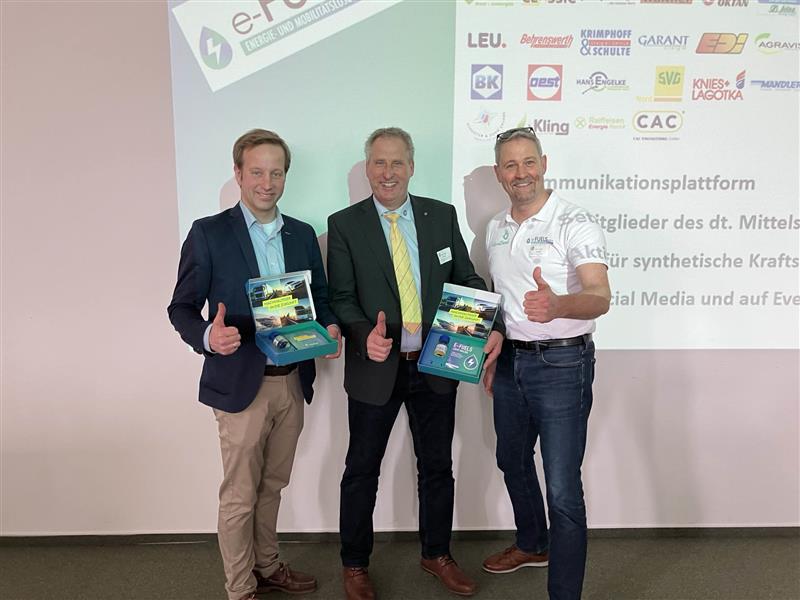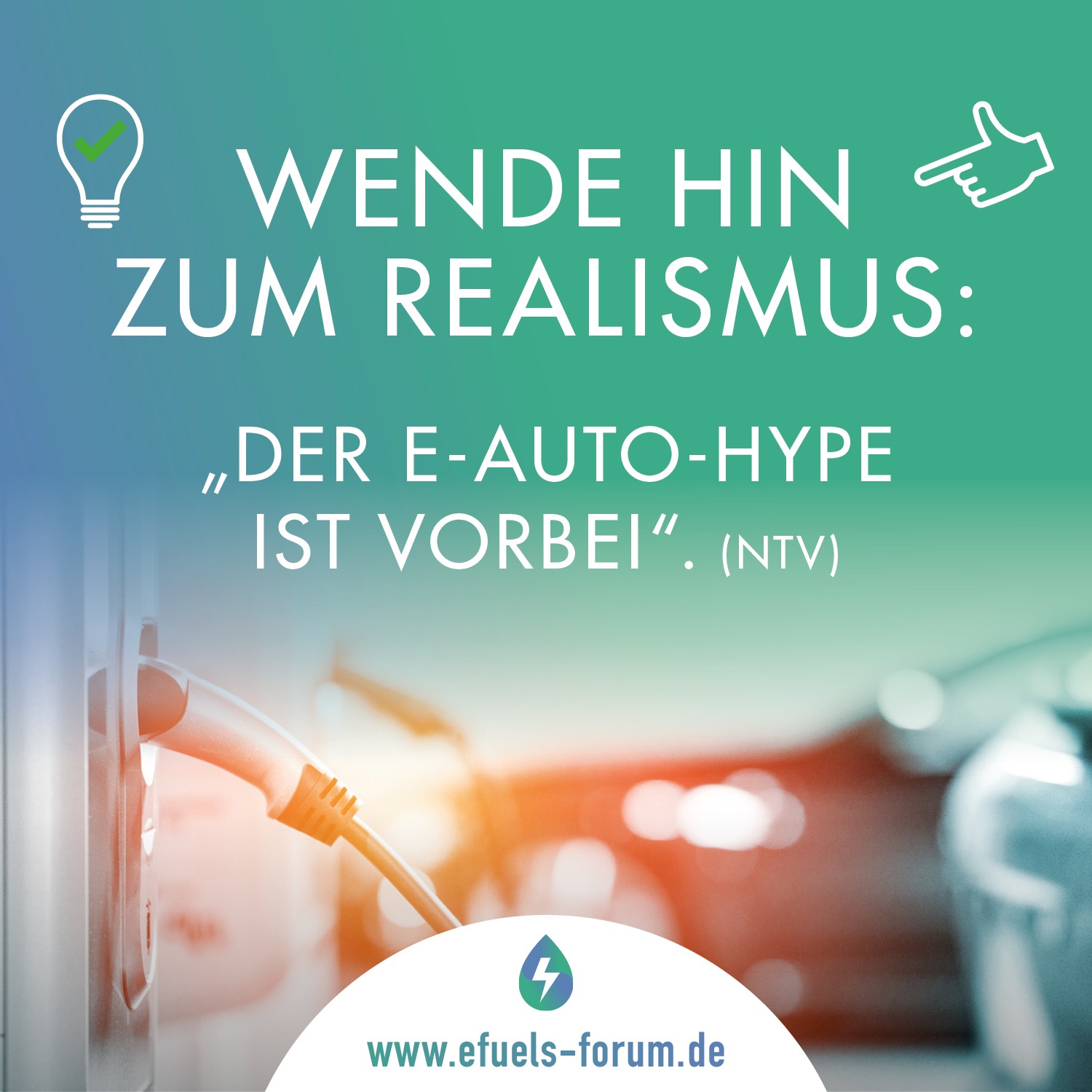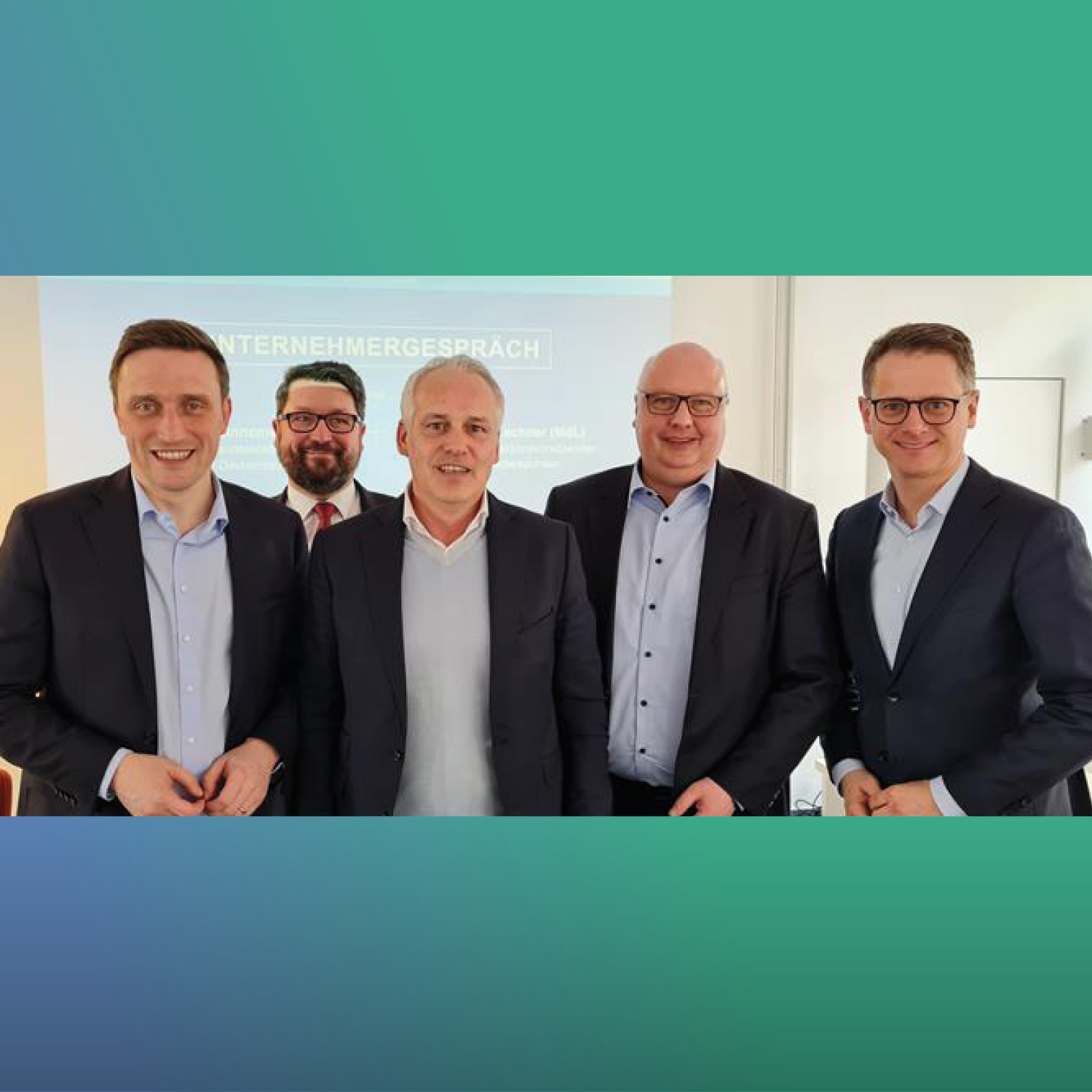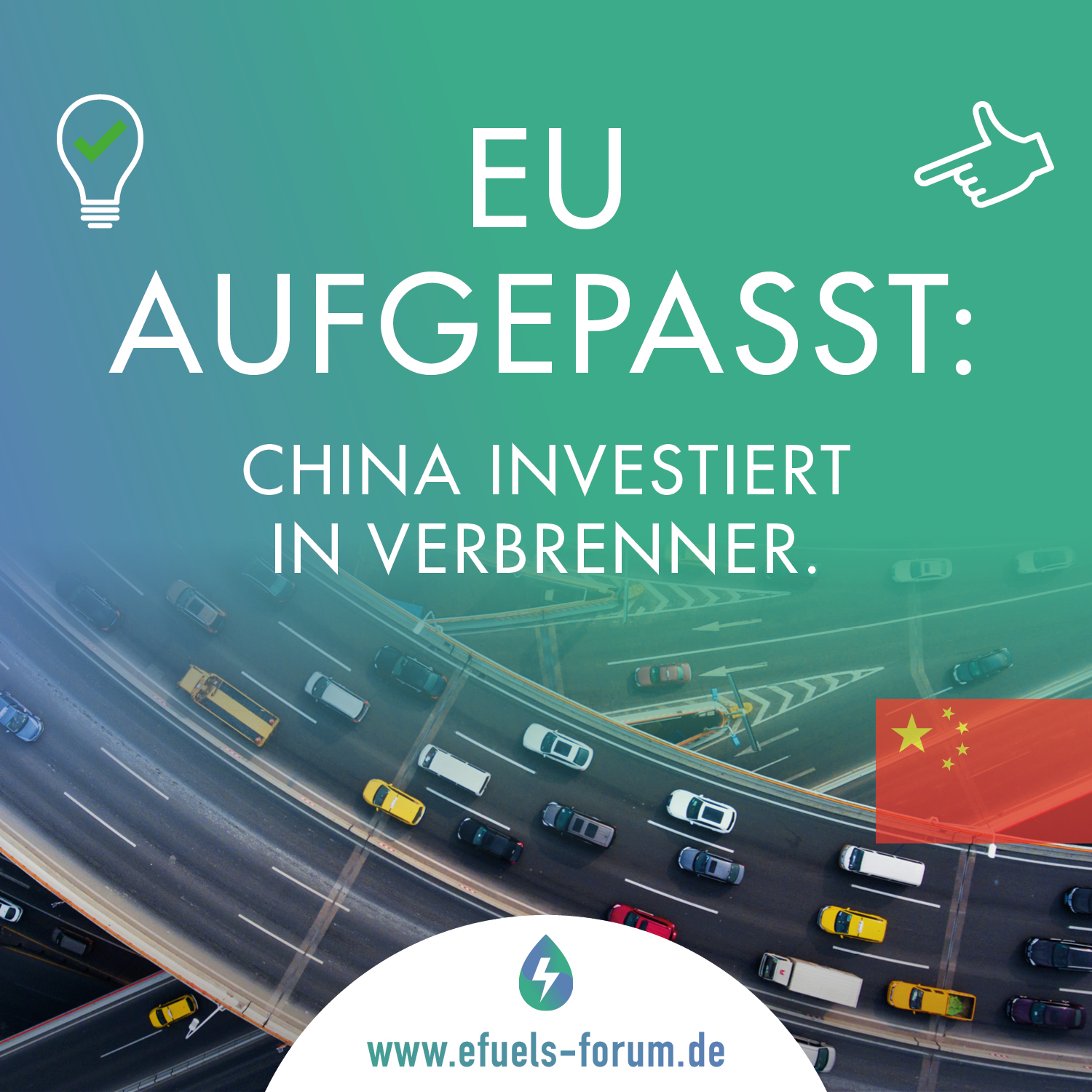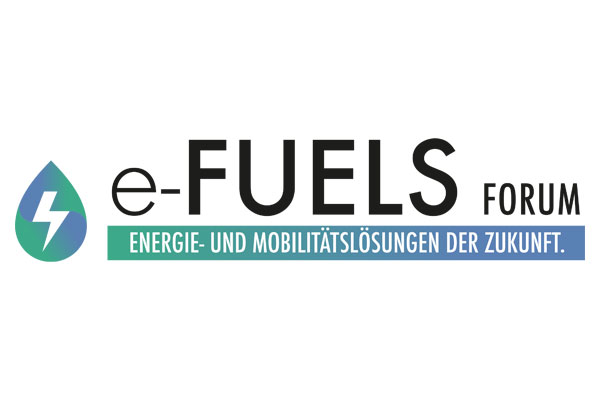E-fuels are an exciting topic that is generating a great deal of discussion in politics and industry, and is also making its way into ever wider circles among the general public. In the meantime, there are already people who are getting involved privately and unpaid in order to bring the issue further into the public eye. E-Fuels Now is a group of engineers and progress enthusiasts who advocate for the issue of synthetic fuels, have created their own Facebook group, and draw attention to themselves through petitions and various other actions.
E-Fuels Now is an association of people who privately support the promotion of e-fuels. We talk to Benedikt Zimmermann, Andreas Bauditz and Michael Just – all engineers who work in the automotive and automotive supplier industry. None of them is directly involved in the topic of e-fuels professionally, but all of them are enthusiastic about the great potential of these novel fuels.
Benedikt Zimmermann founds E-Fuels Nowafter the German government adopts a climate package in 2019 that once again does not take e-fuels into account. The engineer then decides to take action himself and creates an online petition and a Facebook group. He is quickly approached by other interested parties and thus finds further comrades-in-arms. Benedikt Zimmermann is aware that even colleagues from the automotive industry are rather unfamiliar with the topic and how much educational work still needs to be done overall. Zimmermann explains: “We were quickly by far the most successful petition on this topic. It may well be that we start another petition in the future, as the topic is becoming increasingly popular and we now also have a large following on Facebook.”
Andreas Bauditz adds: “We are all employed by different employers and were not friends before. The trigger was actually Benedikt Zimmermann’s petition. 10 000 signatures are few compared to other petitions – for example, we were overtaken within days by a petition against the Corona closure of tattoo parlors – but e-fuels are a rather complex issue that many people haven’t even realized directly affects them as motorists.”
German e-fuels technology for Chile
Zimmermann gets to talking about the planned e-fuels pilot project that Porsche is currently building in Chile together with Siemens Energy and a number of international companies:
“This would be the first large-scale production of synthetic fuels. This project could be a real game-changer for e-fuels. We are not helping the world if we only use our wealth to become carbon neutral ourselves. We need to use our technological and financial capabilities to establish renewable technologies and make them competitive with fossil fuels.”
His colleague Michael Just continues: “What Porsche is doing there is absolutely new and virtually a technological beacon that we are aligning ourselves with. This is primarily about maximizing the utilization of wind turbines and storing renewable energy in the form of e-fuels. The manufacture and installation of the systems consume a not inconsiderable portion of the CO2 budget. Therefore, the plants should be used as yield-efficiently as possible in order to be able to achieve a maximum harvest factor. The wind turbines we put up in Germany, of course, have exactly the same carbon footprint as the turbines in Chile, but produce only a third as much electricity. There is simply much less wind blowing here. So, in terms of climate, it only makes sense to put up wind turbines in our country for direct electricity needs. In addition, the Chilean plants of Porsche and Siemens Energy are being developed and produced in Germany, which is of course economically good news for Germany. In return, we get regenerative energy – there really can’t be a better win-win situation. The climate benefits, Germany benefits, Chile benefits. Perfect.”
Germany needs energy imports – and e-fuels!
Michael Just points out another important factor, namely that Germany is already absolutely dependent on energy imports. Today, it may be the oil we import, but soon it could be renewable energies in the form of synthetic fuels. His colleague Andreas Bauditz explains the situation as follows: in 2018, only about 14 percent of the primary energy consumed in Germany was renewable, according to the Federal Ministry of Economics (see BMWi). If this energy is stored in hydrogen or e-fuels, it can be transported easily, but this is not possible over long distances with electricity. E-fuels do not even require high pressures and extremely low temperatures, as is the case with hydrogen, and we already have the necessary infrastructure, such as tankers. Such an import of renewable energy is the real key to us – not only in Germany – being able to achieve the climate targets at all.”
Benedikt Zimmermann also sees a global social component to this: “E-fuels would transform the concentrated oil wealth that exists in some countries into much more globally distributed e-fuels wealth.” In his opinion, international e-fuels cooperation could economically benefit many participants and even represent a form of development aid. He focuses on the global perspective: “Climate change is a global problem that calls for international cooperation. The question that arises for me is why are German politicians so slow to act on this? If companies were required to supply e-fuels on a mandatory basis and the trend continued worldwide, then in not too long we would have exchanges for e-fuels on which climate-neutral fuels could be freely traded. Then things will really take off very quickly.”
“A lot of people mess everything up”
Unfortunately, Andreas Bauditz sees a real need to catch up in Germany when it comes to knowledge of renewable energy and e-fuels: “What I always notice in many discussions is that people get everything mixed up. So when some people are now rejoicing that we already have a 45 percent share of renewable electricity, most of them don’t even know that this accounts for just eight percent of Germany’s total energy demand. However, these eight percent and another six percent of other renewable energy sources together account for only 14 percent in the total budget. That is simply too little. We can really only solve this problem by importing renewable hydrogen and just e-fuels.”
Michael Just sees a political dimension: “The values of the politically more left-wing people in Germany are actually very well represented by the e-fuels idea. However, the one-sided subsidy, the so-called environmental bonus, achieves the opposite. You distribute the public’s money to people who can afford to buy a new car. These people probably come from the middle or upper class and now receive 9,000 euros from the general public. I read in the VDI Nachrichten that around 1.75 billion euros have been disbursed since mid-2019 alone, when the subsidy was introduced. So it’s not a replacement of vehicles, it’s an expansion of the existing fleet.”
Andreas Bauditz agrees: “A colleague of mine once did the math. That’s not just about purchase assistance, but about shortfalls in energy tax – better known as mineral oil tax -, subsidies for private charging stations and other factors. For a mid-range e-car, he came up with about 22,000 euros in government subsidies over ten years. It can’t be right that a private luxury good is subsidized by the taxpayer.
“It’s worrisome to put all your eggs in one basket”.
Michael Just is keen to emphasize that he and his fellow campaigners at E-Fuels Now are concerned with funding that is open to all technologies. In his opinion, it is very alarming that Germany is relying on only one technology, and on a massive scale. Just: “You have to realize how much money is really being spent – and the whole thing doesn’t even have a benefit for the climate. This is because only one consumer is subsidized, namely the e-car, which could theoretically be powered by non-fossil energy. However, this will not change the German electricity mix with its high coal content. If you invested the money in building a refinery for e-fuels, for example, in countries like Chile, you would have spent just as much money, but at the same time you would have secured jobs for the plant manufacturers, created a CO-2 cycle, and still have renewable energy available.”
“The German state must finally act”
His colleague Benedikt Zimmermann, believes that it is high time for state action and explains: “Actually, the German state does not even have to put very much money in its hands. A clear requirement, for example that a certain proportion of e-fuels must be produced and used, would probably already suffice. There is so much money in the market looking for reasonable investment opportunities, it should not be a problem at all. The state must ensure investment security via guaranteed purchase quotas. Similar to the feed-in priority for renewable electricity“. Andreas Bauditz sees it this way: “Investors are basically just waiting for the topic of e-fuels to finally get going. Synthetic fuels would simply have to be recognized in fleet consumption, which would be exactly the right impetus we need in the EU.” He thinks it is particularly important to increase the pressure on politicians and to keep asking specifically why only one technology is being promoted in the Federal Republic.
All three engineers are convinced that e-fuels can make economic sense. Benedikt Zimmermann: “Renewable energies at the right locations abroad are so inexpensive to produce that no conventional or nuclear power plant can actually keep up. The only problem is to then transport the energy to us. Here are E-fuels as energy storage a good solution.” Michael Just agrees, “E-fuels are liquid, renewable-based chemical energy storage devices imported to us from places with maximum yield efficiency. In these places, there is usually no existing infrastructure in the form of thigh-thick and expensive power lines in the ground.”
“We want climate targets to be met”.
Andreas Bauditz summarizes the goals of E-Fuels Now as follows: “We want the Paris climate goals to be achieved. But we can’t do that if we don’t involve the existing fleet of cars, trucks, construction equipment, aircraft and ships in defossilization. At the moment, we believe that policy is too focused on the new car business. But replacing all the cars will take a very long time and is just too slow. In plain English, this means that anyone who opposes e-fuels is, in principle, preventing the entire transport and heating sector from participating in the fight against climate change. If you then consider that the demand for renewable energy in German industry is growing all the time, it quickly becomes clear that we have no choice but to import renewable energy.
As an engineer, I clearly demand that policymakers finally take a look at the facts and shape policies in such a way that we move away from fossil fuels as quickly as possible. But we are still a long way from that at the moment. It’s even worse, there are people in German politics who grudgingly say, okay, we want e-fuels for airplanes and ships, but not for private cars. This is nonsense if only because in the Fischer-Tropsch process, e-fuels for cars are so-called co-products. So I can’t just produce kerosene for airplanes, I always get proportions of gasoline and diesel out of it. Why not use these CO2-neutral products? There’s a real lack of fundamental knowledge there.”
Private initiatives like E-Fuels Now can make a valuable contribution in disseminating important facts about climate change and e-fuels. The fact that the three engineers, together with other interested parties, are privately and unpaidly committed to the topic gives them a high degree of credibility and persuasiveness. The better we as a society answer the many unanswered questions about climate change and how to combat it, the better the decisions we make in Germany will be in the end. Protecting the climate is indeed not just a matter for entrepreneurs and politicians, and should ideally be discussed in a way that is open to technology and with maximum expertise.
The post E-Fuels Now – Engineers fight for synthetic fuels appeared first on eFUEL-TODAY.


